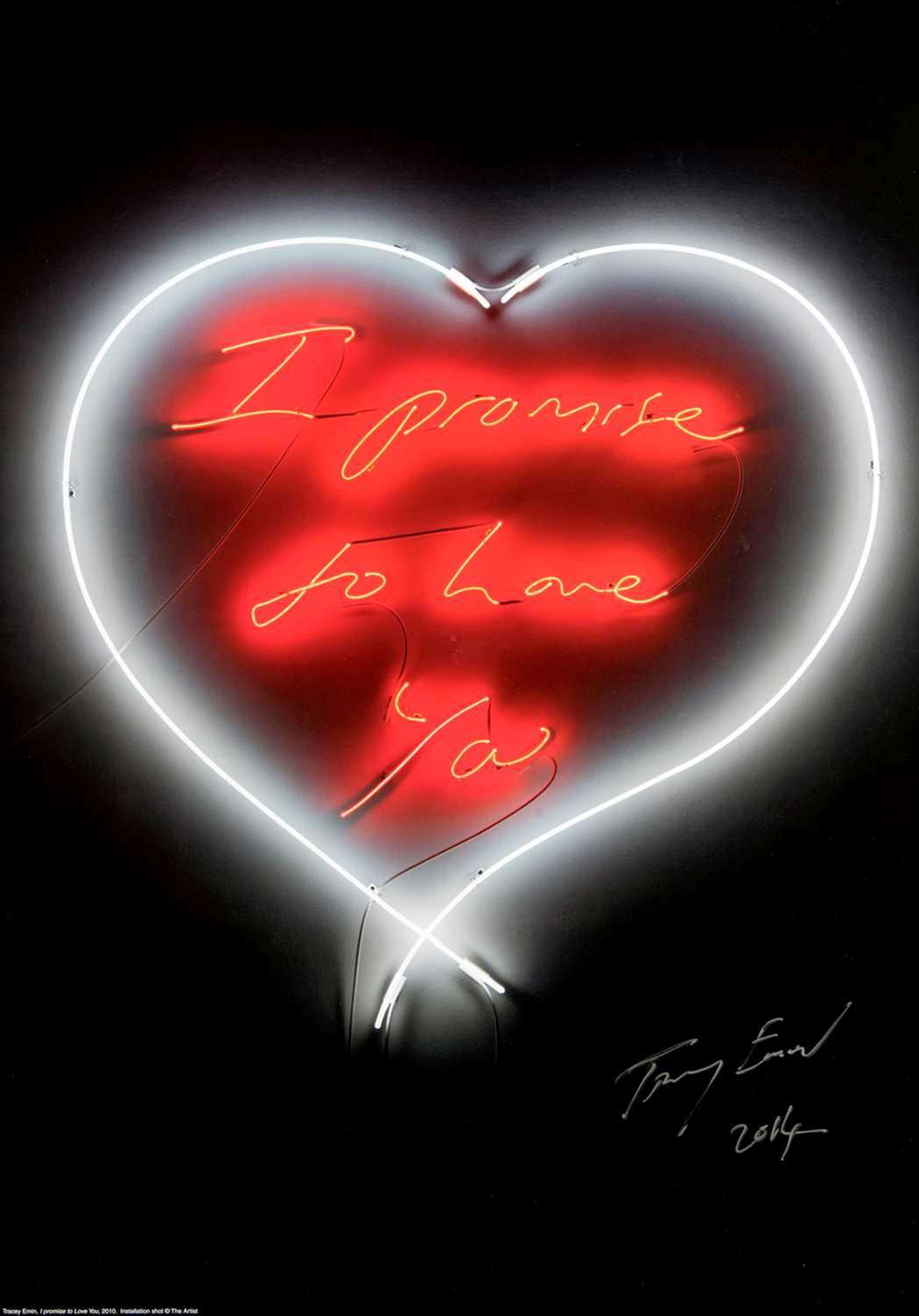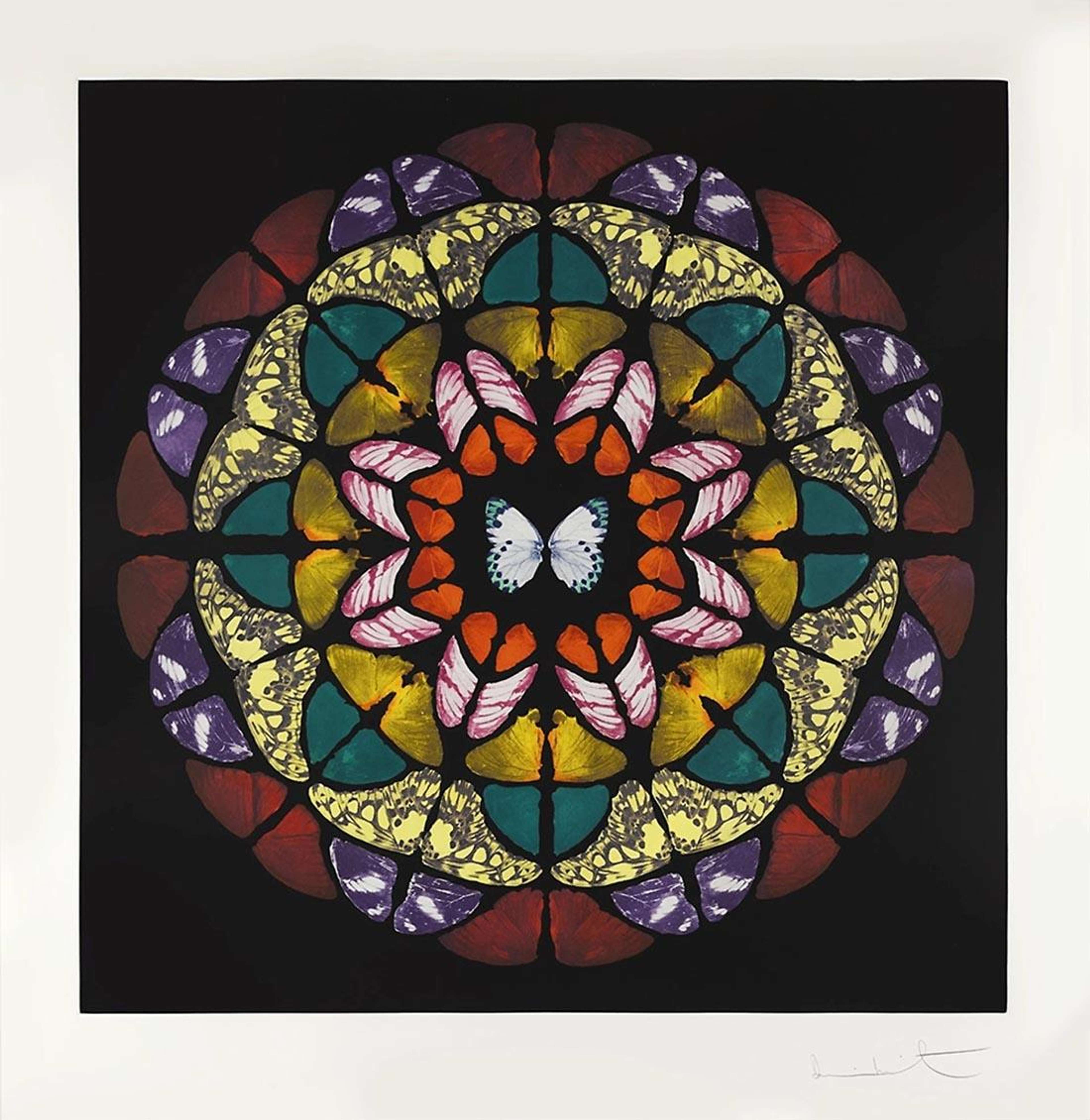 It’s What I’d Like To Be © Tracey Emin 1998
It’s What I’d Like To Be © Tracey Emin 1998
Tracey Emin
143 works
Tracey Emin published her first lithograph in 1986. Since then, printmaking has been a key medium and a consistent presence in her oeuvre. Her monotype prints, taken from her diaristic drawings, are, for the artist, a fixed part of her practice that form a backbone to her broader output.
Works on Paper
The intimacy and immediacy of working on paper allows for Emin to express her innermost thoughts, fantasies and memories. Similar to a visual stream of consciousness, her prints give direct insight into her emotional world and often include snippets of profound text.
Tracey Emin is an artist known for her honesty. In the context of her candid practice, Emin’s prints are perhaps the most direct of all her works. Bringing her personality to the paper, the prints combine stinging, emotive utterances with her expressive line and at times, can be humorous. Her confessional prints are particularly vivid and form a close connection with the artist making them a desirable and valuable asset in any collection.
Emin has a distinct drawing style that is, in part, indebted to Edvard Munch and Egon Schiele. Her characteristically soft, scattered line is given texture and prominence by her the monoprint methods she chooses to work with. A particularly well-known print like Kate, 2006 is a stunning example of how her simple line conjures the personality and essence of her subjects. This image of the supermodel Kate Moss is a frank portrayal with potent emotion conjured effortlessly. As a gift, Emin made one of her trademark neons for the model, reading “Moss Kin”. It was subsequently famously found in a skip by Emin’s studio: she had thrown it out after Kate was unable to collect it.
Emin’s Nudes
Other sole female nudes are portrayed with vulnerability by Emin’s intense drawing style. As she has said:
“Sometimes magic things happen; it’s just something within the process. I don’t like it when the drawings get too neat. It looks like a machine’s done them, so it’s no good, it’s got to be real, you know?”.
There is indeed an unequivocal rawness to her prints. Her nudes, often herself, feel pained. This is exacerbated by the titles of her prints, which are revealing and give something away of the figure’s turmoil. It is not only the innate angst of these figures that draw a comparison with Egon Schiele. The foregrounding of her body and scrutiny of herself is indebted to the 19th century artist. Emin explains that:
“A lot of other art that I had been exposed to up until this point was about artists looking at other things and other people. Egon Schiele appeared to be intensely looking at himself…”
Words & Neon
Like her drawing line, there’s no mistaking Emin’s handwritten words. Her neons are instantly recognisable and can be seen in prominent places across the world, from St Pancras train station to New York’s Times Square. Since the early 1990s, Emin has been using neons to bring to life her innermost thoughts. Rather than adopting a graphic font, significantly Emin uses her own handwriting and is conscious to use phrases that are universally relatable.
Some of Emin’s most notable neons have been reimagined as prints. My Heart Is With You Always, 2015 references a large scale, public installation in Hong Kong. The work brings together passers-by and unites them with an enduring statement about love. The neon recounts Emin’s childhood growing up in Margate amongst the fairground and arcade neons. She believes that:
“Neon is emotional for everybody, the neon and argon gases make us feel positive, that’s why you have neon at funfairs, casinos, red-light districts, and bars. It’s also to do with the way it electronically pulsates around the glass, it’s a feel-good factor. Neon can help people who suffer from depression.”
Emin continues to explore the printmaking medium with great fervour. Whether images of birds, squirrels, nudes or written scrawls, these prints are intimately linked to the artist. We see Emin at her most intimate, firmly at the centre of the work, unapologetic, passionate and fearlessly exposing her inner psyche.
I Followed You to the End (2024)
Emin's latest exhibition, I Followed You to the End, at White Cube Bermondsey, showcases an evocative exploration of themes including love, loss, mortality, and rebirth. The collection, deeply personal and emotionally raw, features new paintings and sculptures inspired by Emin’s experiences, including her recovery from bladder cancer. The works reveal a poignant interplay between vulnerability and resilience, with expressive strokes and vivid palettes reflecting states of pain, passion, and introspection. Highlights include the titular painting, which captures the emotional weight of unfulfilled love, and the monumental sculpture that commands attention with its tactile, deeply worked surface. This exhibition underscores Emin’s ability to transform personal trials into universally resonant art.






